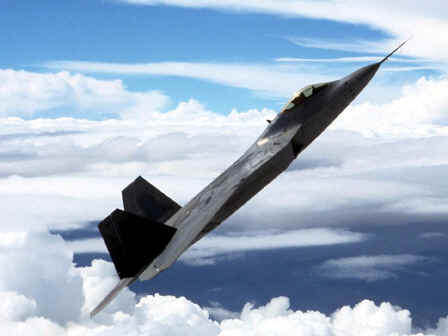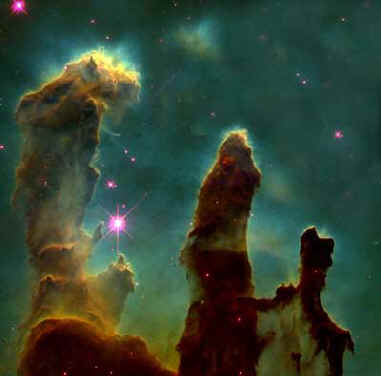Editor’s Note: This was written
concurrent with the inauguration of President Obama. I didn’t really feel like
doing anything overtly political during that momentous period, so, instead, I
responded to an article I’d seen in several newspapers at the end of 2008.
That
article, which advocated a severe curtailing of NASA’s
budget, was written by Bill Collins, whom I’d played basketball with for years during
my youth. I agree with him on most things political, but this time I just couldn’t.
I’m of the opinion that science is the most-important thing mankind does or
ever will do, so anything that supports the advancement of science is worth
doing, even when it’s sometimes expensive or dangerous.
Why We Need NASA
Assuming
we don’t destroy ourselves during the next century with WMDs or global
warming, what will mankind be proud to have accomplished? It would be nice to
think that among our achievements will be the exploration of the solar system.
In
a column in the Stamford Advocate, syndicated columnist and former
Norwalk mayor William Collins recently suggested cutting NASA’s budget,
particularly for manned space flights. I seldom disagree with Mr. Collins (and
hate to contradict someone who regularly faked me out of my Nikes on the
basketball court); however, this time, the Mayor has tossed up an air ball.
Probably
envisioning more-humanitarian uses for astronauts’ salaries, Collins’ heart
is in the right place. As the Bush family leaves us with one last recession,
this one heading toward a 1930s-style collapse, concern for the poor is
understandable. However, as Jesus put it, “Ye have the poor always with you”
[Matthew 26:11]. If mankind had waited for poverty to disappear before doing any
exploring, we’d still believe the Earth was flat, and Columbus might have
become a gondolier.
 |
|
NASA’s
$17.6 billion FY09 budget is a teardrop in the ocean, compared with
GOP-era deficit spending, the bailouts already handed out, optional-war debt and
run-of-the-mill Defense Dept. appropriations. With the Cold War long over,
we continue spending more on defense than every other country in the word combined,
and a substantial percentage of federal R&D goes toward military
applications.
For
example, the Air Force requires $63 billion for its new F-22 Raptor air
superiority fighter, although none of our enemies has — or can afford to
develop — an aircraft to match the F-15E, our current top-of-the-line
fighter. Our government clearly loves overkill. |
On
its way out the White House door, the
Bush administration awarded $700 billion to the same white-collar criminals and
predatory bankers who had wrecked our economy in the first place. I’d rather spend
all of NASA’s $17.6 billion to parachute Bernie Madoff onto the surface of Pluto than
pay for another AIG executive retreat in St. Regis. And the automakers’
bailout request is likely to fund CEOs’ golden parachutes or, perhaps, upgrade
their Gulfstream IVs to Gulfstream Vs so that future flights to Washington to
beg for additional corporate welfare will be a little less irksome.
In
today’s economy, the Reagan-era slogan “greed is good” seems a tad less
benign than it did when uttered by yuppie scum Gordon Gekko in the 1987 movie
“Wall Street.” In contrast, the space program is scientific advancement
mainly for the joy of discovery, with little commercial gain, beyond Tang, Teflon
and an overpriced gadget for turning urine into drinking water. We originally
raced the Soviets to the Moon as part of the Cold War, but the ultimate return
on investment was the thrill of the accomplishment.
|
Science for its own sake is
one of mankind’s redeeming qualities. Playwright Jerome Lawrence’s
defense of Darwin in “Inherit the Wind” could also be applied to NASA:
“The advance of man’s knowledge is more of a miracle than any sticks
turned to snakes, or the parting of waters. What other merit have we? The
elephant is larger, the horse is stronger and swifter, the butterfly more
beautiful, the mosquito more prolific, even the simple sponge is more
durable.” |
|
 |
 |
|
The
U.S. space program integrates leading-edge technology with the
scientific legacies of Copernicus, Newton and Einstein. We’ve retrieved
minerals from the Moon; landed rovers on Mars; orbited spacecraft around
Jupiter, Saturn, Uranus and Neptune; dropped probes onto Venus, and maintain a telescope in
space* that gathers images from billions of light years away —
photographing events that occurred shortly after the Big Bang.
Like
Darwin’s research, space exploration adds pieces to the jigsaw
puzzle of our origins. The ancient creation myths —such as Genesis and
the Rig Veda — are beautiful literature, but they’re religious
mythology, not history or science. The scientific investigation of our
beginnings is the bridge to our identity and a far more lofty goal than
the myriad “Bridges to Nowhere” our legislators so regularly and eagerly vote to
fund. |
Libertarians
quite sensibly oppose government involvement in areas the private sector could
address, but the space program is too big even for Bill Gates to handle. If
budget cutters want to feel good about eliminating extraneous line items, let
them cut the relatively microscopic budget of the National Endowment for the
Arts (NEA). Poets and sculptors will go on creating without federal grants, but
we’ll never walk on Mars without substantial government support.
History
reveres the Sumerians for inventing cuneiform and beer, the Greeks for science
and democracy, the Arabs for algebra, and the French for champagne and some of the
world’s tastiest soft cheeses. It will be nice if America is remembered for
more than the iPod and the cluster bomb.
* In the interests of full
disclosure, the Perkin-Elmer Corp., which built the Hubble Space Telescope
(HST), also
paid my salary for 16 years, so I’m not an entirely disinterested party in
this area.
Click here to return to
the Mark
Drought home page.


